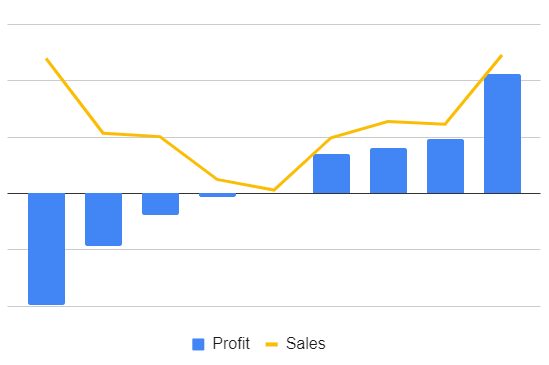What are the most important metrics if you want your business to be scalable? 📈
I get this question a lot. I guess people think I'm a data nerd (and they're not wrong. 🤓)
While of course there's not a one-size-fits-all answer, here are the 4 key metrics that I focus on with my clients as they scale their business…
In 2011, the company I was working at was at the brink of bankruptcy. I didn’t know it at the time, but we were just one payroll away from having to close our doors.
A year later, we not only survived, but had earned over $5M and expanded our team by 5x.
As incredible as that turn of fate was, I’m not here to tell you about how we turned things around and went from near failure to unequivocal success. I’m here to tell you about what came next.
Just two years after our meteoric rise, our profits had vanished entirely, we were forced to lay off half of our staff, and we were on life support - again.
Read MoreSix months ago, I set out to create an assessment tool in order to gain some insights that could help me help more businesses. I wanted to see what businesses were (and weren't) measuring, how they viewed the importance of process in their business, and how they made decisions about what to work on and improve.
Recently, I sat down to take a look at what the past six months of data showed. I was curious if there would be a pattern or narrative that emerged that would tell me something about how business owners grow and operate their businesses.
There was. And surprisingly enough, the pattern emerged in the first five questions…
Read MoreIn an era defined by big data, metrics have too often become overused and misunderstood. There’s a desire among many business leaders to collect every piece of data that they possibly can about their business to arm them with information that can give them a leg up.
Then again, just as often there are those who feel overwhelmed by the very notion of data and instead look at simple markers like revenue, production, or even instinct to tell them how the business is doing.
Either way, the result can be detrimental. Too much information can leave you swimming in a sea of dirty or segregated data, not being able to see the forest through the trees. Too little and there’s a complete lack of visibility between your top and bottom lines, leaving you charging full steam ahead not knowing where you’re headed.
Read More



